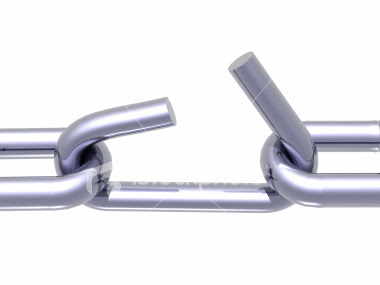The weakest link

If you don't know what to do in a game you can simply improve your worst piece. The same is true with chess study as a whole. Improve where you are the weakest. In executing tactical combinations I'm at least at 1800 level, maybe more. But when I can't crush my opponent I tend to panick and to go for the nearest draw, no matter the level of my opponent. If there is no direct tactical shot, I more act as a 1500 player. It feels a bit as if I'm a kickboxer with only one trick, a deadly overhand right. But when I can't make it, it shows how limited I am.
All that is changing lately. I have thrown my whole gambit repertoire out of the window and I play solely the Polar Bear with both black and white. In the cases that isn't possible (with black against 1.e4 1.f4 or 1.g4) I play the Lion. Both openings are rather slow and positionally. Since I come from so far (low) positionally I can't say how much my game is improving. The strategy module of PCT is a very good way to improve this weak side of mine. My rating at CC hoovers around 1800, but 80% I play with black, to get experience with the Polar Bear with a tempo down. I even have quite a few games running where I experiment with the French defense (which I don't want to adopt in my repertoire, btw). So the CC-rating isn't a clear indicator yet.
When I do the strategy exercises of PCT for the first time I score only about 20% correct. But very soon, from the first repetition on, I start to score 90% correct and better after more repetitions. There are 3 reasons why this percentage-correct improves so fast:
- The regimen of repetition in PCT is very astute
- The problems are not very complex, typically 1 to 3 moves deep. Although the effect of the moves usually last much longer, of course.
- Most problems are based on a single idea which can be expressed well in plain text. This description is most helpful for retrieving the moves from memory. I consider this to be the main reason.
3 years ago my average gamelength during the Corus tournament was just 24 moves. That is extremely short. Now my games become longer. That seems to be a disadvantage, but it isn't. Due to a higher level of my opponents, the short crush tends to become more rare anyway. These openings are less forcefull in the beginning, but usually they catch up in the early middlegame. Another effect of the positional training is that I start to play much faster. I used to come into time trouble at move 16 or so, in search for the ultimate tactical combination when there isn't one. Now my play is much more relaxed, since I know better what to do when there seems nothing to do. I'm losing my fear for the trade of pieces, especially the queens, which is always a big concern when playing a gambit. My new openings tend to build advantages that last into the ending. And that is another effect, I get more endings. Actually I'm very happy with that. Finally my games become more mature. That I'm terrible at endgames is a minor glitch that just offers new opportunities for improvement:)
I used to spill the most points against weaker players due to timetrouble. Without timetrouble and with a better positional insight I expect to improve especially against the lower rated players.
http://hem.passagen.se/tjmisha/reti_gambit.html
ReplyDeletehave you seen this system against the french see videos
Tak,
ReplyDeleteI appreciate your attempt to preserve me for the ranks of gambiteers:)
But a contemporary grandmaster is only allowed one year to go on a gambit spree as a form of youth sin. Since my development elapses at a much slower pace, I commit this youth sin already for more than 7 years. Now it's time to move on! I can hardly claim that playing a gambit is my weakest link.
BTW the gambit looks interesting and playable at first sight.
Wow- I'm often inspired and encouraged by your posts. You have incredible insight and I admire your ability to get to the core idea.
ReplyDeleteI'm going to work in a concurrent Strategy module. I also get stuck for a plan and look for tactics that don't exist.